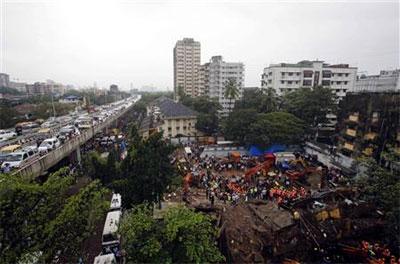Waste management, digital urban land management and urban transportation key areas of focus
 The city's 20-year development plan till 2034 is likely to get a 'Swedish touch' with the western European nation extending its expertise to help develop Mumbai as a 'smart city' that will be economically, ecologically and socially sustainable.
The city's 20-year development plan till 2034 is likely to get a 'Swedish touch' with the western European nation extending its expertise to help develop Mumbai as a 'smart city' that will be economically, ecologically and socially sustainable.
Swedish urban development and IT minister Mehmat Kaplan, who was in the city over the weekend, met State chief secretary Swadheen Kshatriya and BrihanMumbai Municipal Commissioner (BMC) Ajoy Mehta to discuss how the country could collaborate with the state as well as the richest city corporation on the continent.
"We have the expertise in various fields and we would like to collaborate with the Maharashtra government and offer our expertise in waste management, digital urban land management and urban transportation," Kaplan said.
He said if Mumbai is to become a smart city, there are various factors that are involved which need to be well managed, which include waste and land management and transportation among others.
"Sometimes we do not know how city planning is to be dealt with. The Geographic Information System (GIS) is an important part when you are dealing with 3D urban land management. If this is done, we can actually make the decisions faster and socially sustainable," he said.
The minister said that through the collection of big data, the mapped information will be available online and there will be no need to use paper and pile up files as we see in the planning offices in megapolis.
"We need to take important step of digitalising the urban land management which is a quite new technology but will make it cheaper in middle and long term," Kaplan added.
The megapolis' development plan till 2034 was highly criticised for large number of errors in the proposed plan, which was subsequently scrapped by the state government.
The development plan had proposed a considerable hike in Mumbai's FSI and also opened up the so far protected south Mumbai for utilisation of transfer of development rights as floating FSI.
The overall increase in bulk FSI was linked to proximity to mass transit modes, but not indexed to provision of physical and social infrastructure.
Later, the chief minister had asked the BMC to prepare a revised DP and accordingly in July retired IAS officer Ramanath Jha was appointed to head the revision process.






 © 2025
© 2025